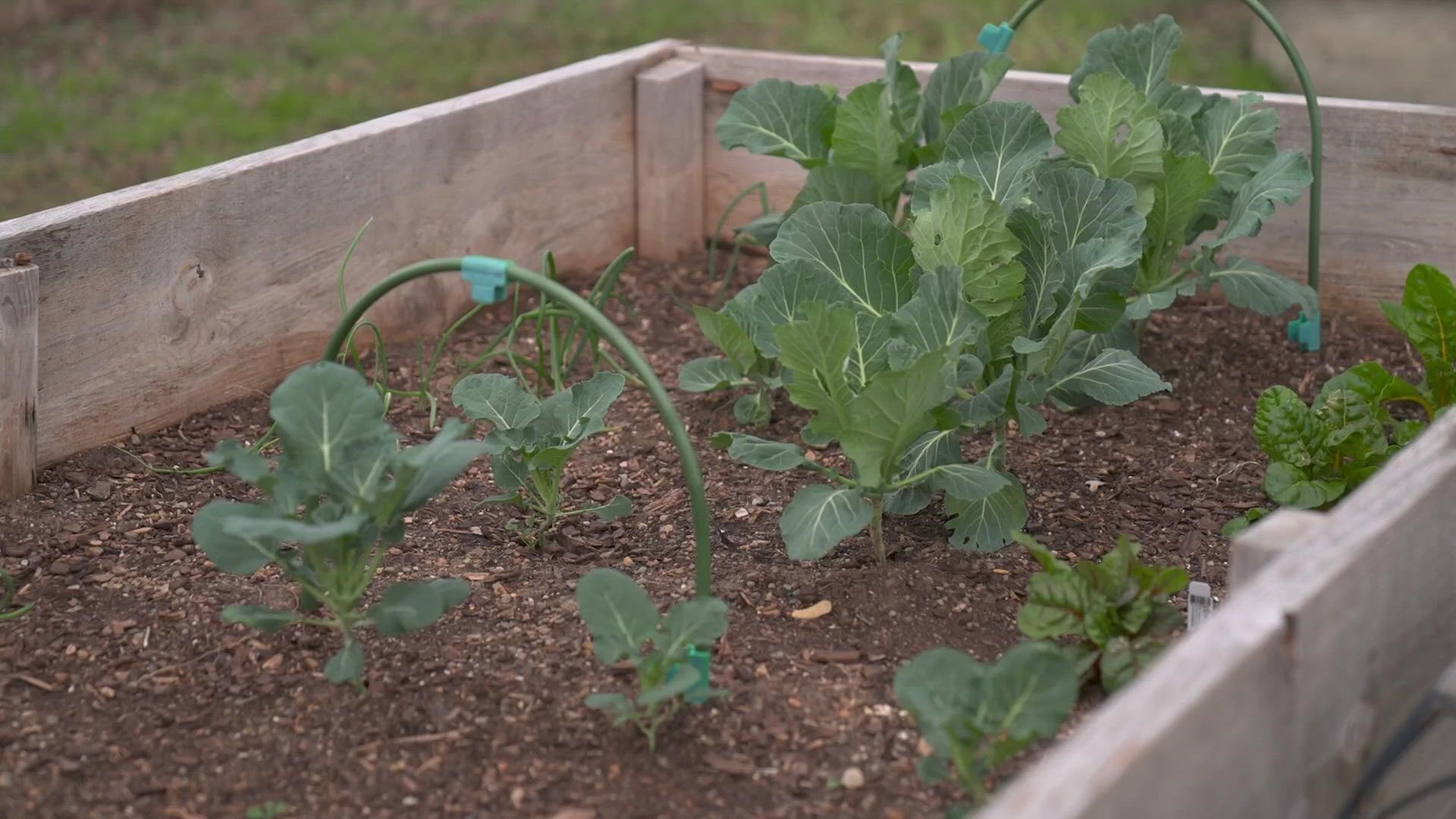FORT WORTH, Texas — The zip code 76104 in Fort Worth has the lowest life expectancy in Texas. Most won’t make it to 67.
Interstate 35 splits the zip code and serves somewhat as a dividing line of resources with the city’s medical district on the west and to the east, the underserved, majority minority neighborhoods of Morningside, Hillside and Historic Southside.
Dr. Henry Scott has called 76104 and Historic Southside home for 12 years.
“There’s so many residents that we have to travel so far to get to a grocery store,” Scott said. “It bothers me that we don’t have it.”
The area is a food desert. A UT Southwestern study that found that life expectancy is 12 years below the national average.
Scott’s backyard, though, is part of a grassroots effort to change’s the neighborhood’s narrative.
Southside Community Garden began putting up gardens in 2021. Scott currently has collard greens, chard and onions that survived the recent winter freeze but has lost count of all the different fruits and vegetables he’s grown.
“There’s just something about the taste of fresh vegetables that’s so much different from what you may buy out of the store,” he said.
The idea began with Patrice Jones. She saw the UTSW study on the low life expectancy and considered building a community garden but figured small 8-foot-by-4-foot garden beds in backyards would be more feasible.
“You find plenty of Family Dollar, Dollar Generals and Dollar Trees which sell processed food and beer and wine, but they don’t sell fresh produce,” Jones said.
Jones had the idea but no resources to make it happened.
That changed when she ordered a fridge from Lowe’s but the company messed up delivery, accidentally giving the fridge to someone else.
They offered her a $500 gift card, but after back and forth calling and escalating the issue to a company manager, she was able to convince them to provide a $5,000 donation of lumber that helped build the first the 25 boxes.
“I think they had just had enough of me calling, leaving messages,” she said.
She jokes that neither she nor the other volunteers had any idea what that amount of lumber would look like and were shocked when an 18-wheeler rolled up their storage unit with a forklift in tow.
“We were so naïve,” Jones said. “We’re thinking we’re just going to physically pick the lumber up, no, no, no.”
Soil was donated for free and a master gardener at the Fort Worth Botanical Gardens helped teach how to plant and cultivate the vegetables.
“The community used their personal trucks, gave us donations, didn’t charge us for soil,” Jones said.
That was spring of 2021. Now, 64 backyard gardens have sprouted up feeding 220 people.
“It’s the excitement of doing it and to watch it grow and to be able to eat fresh vegetables out of your garden,” Scott said. “We’ve had corn. We’ve had peas. What haven’t we had in here?”
Scott has gone from learning to mentoring.
“When you call them and talk to them on the phone, they’re like, ‘My garden is doing this, my garden oh wow thank you!’,” he said. “That’s the kind of response we get.”
Now he’s giving away extras that he can’t freeze.
“People that we don’t even know,” Scott said. “Neighbors behind us we’ll see them, and we’ll be like, 'Hey you like okra?'”
“There’s way that anywhere in this nation should lack fresh produce,” Jones said.
The group is now registered as a 501c3. United Way, Texas Health Resources and even continued help from Lowe’s have kept them going, but Jones said they are running out of funding and need help.
“I didn’t want to feel comfortable going to ask for money before we showed 'hey, this is what we can do with no money,'” she said.
The gardens cost about $1,000 each. The group provides seeds, tools and support and demand is so high they shut down their online signup.
“It makes me sad that we have to limit it and say no because we literally just don’t have the funding,” Jones said.
The gardens have been a source of pride as much as food. They’re life in an area known for death.
“I love it,” Scott said. “I think it’s much needed, very much needed.”

